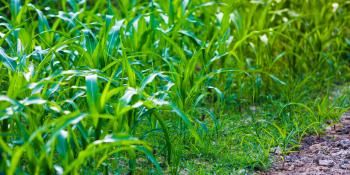Gender, agriculture, climate change and policy responses in Africa

In Africa, gender sensitive policy responses to the effects of climate change are critical to ensure a productive agriculture sector and a food-secure growing population.
Climate change is a threat to human development in Africa. It continues to erode human freedoms, deepen gender inequalities and increase risks and vulnerabilities. As the world moves towards a new climate agreement in 2015, Africa’s women must be at the frontline of climate change debate and action. These were the agreements reached by a team of experts who met from 4-6 August 2014 in Nairobi, Kenya to discuss and draft a policy document on gender and climate change in Africa that will be shared during the United Nations Secretary General Climate Summit to be held on 23rd September 2014 in New York, USA.
“African women especially those directly engaged as primary food producers are not only vulnerable to climate change but they are also effective agents of change in relation to implementing adaptation and mitigation strategies” said Dr. Ruth Aura, Chairperson of Federation of Women Lawyers – Kenya (FIDA-Kenya) who attended the meeting.
Across the continent, Africa’s women are primary producers in agricultural activities, managers and users of productive natural resources. They possess a strong body of knowledge and expertise that can be used in climate change adaptation and mitigation strategies. Furthermore, as stewards of natural and household resources, women are at critical positions to contribute to livelihood strategies adapted to changing environmental realities. However, they face marginalization in critical areas relating to access and ownership, policy and decision making.
According to the United Nations Food Agriculture Organization (FAO) if women had the same access to productive resources as men, they could increase yields on their farms by 20–30%. This could raise total agricultural output in developing countries by 2.5–4%, which could in turn reduce the number of hungry people in the world by 12–17%.
Access more facts on climate change and gender: Big Facts
In Kenya, for example, a group of women, the Mama Watoto Group, manages an afforestation programme on conservation of bio diversity, prevention of soil erosion and improved soil fertility. This has diversified women’s sources of income, mitigated the threats of climate change such as flooding, landslides and drought. In Mali, women are the primary users of the Shea tree, edible Tamarind and Fonio. They also posses indigenous knowledge of certain vegetable species used for basket making, weaving and pottery making. Imperatively, Africa’s strategies and investments must be aligned to these realities and experiences.
“Access to formal education and advancement in technology in Africa, is slowly leading to changes in societal expectations and gender relations. In some communities, women’s growing responsibilities in providing for the family’s food security and income needs are becoming recognized. Africa therefore needs to tap into these small but significant transformations and increase women’s access to productive resources (such as land, agro advisory info, credit, fertilizers and seeds) and make them inclusive in policy-making processes”, said Dr. Maria Phiri, a gender and climate change expert from COMESA.
Policy response: addressing gender issues
Policy responses in Africa have been informed by international conventions and declarations. These include the Convention on the Elimination of All forms of Discrimination against Women (CEDAW), the Maputo protocol on the rights of women in Africa, Solemn Declaration on Gender Equality in Africa, the Beijing Platform for Action (BPA), the United Nations Framework Convention on Climate Change (UNFCCC) and the Millennium Development Goals (MDGs). Conference of Parties (COP) 16 decisions obligate developing countries to develop and implement national adaptation plans (NAPs) and nationally appropriate mitigation actions (NAMAs). This provides an opportunity for national climate change policies and strategies to incorporate gender dimensions.
The policies on sustainable development have been created articulating the intrinsic and interlinked importance of gender equality and environmental sustainability. Emphasis is on equal participation of both men and women which is critical for equitable and sustainable development. A number of countries in Africa have made strides in ensuring that advancing gender equality is integrated as a driver for sustainable development. Benin, Liberia and Mozambique are among the countries that have made progress towards gender equality and empowerment in environment. They have also developed and implemented gender-responsive national strategies and plans of action to tackle and build resilience to a changing climate.
African governments must therefore increase investments in initiatives that address vulnerabilities and build women's resilience and adaptive capacity to risks associated with climate variability and change. These investments should apply a holistic approach that enables empowerment of women, advancement in technology and sustainable livelihoods in agriculture, renewable energy, land and water use and management.
Way forward for gender-responsive adaptation and mitigation in Africa
Africa must document the impact of climate change on gender; develop appropriate gender responsive adaptation and mitigation strategies and policies. Secondly governments and other relevant institutions to build capacity of women to participate in key decision making; harness indigenous knowledge; provide training on and access to technological innovations; and financial support to women’s community based actions. Finally, governments and development partners need to support and strengthen advocacy initiatives for information dissemination and networking on gender and climate change.
Mary Nyasimi is a Gender and Policy Specialist with CCAFS based in East Africa. For more information about CCAFS work in East Africa visit the webpage and follow @cgiarclimate_EA on twitter.



